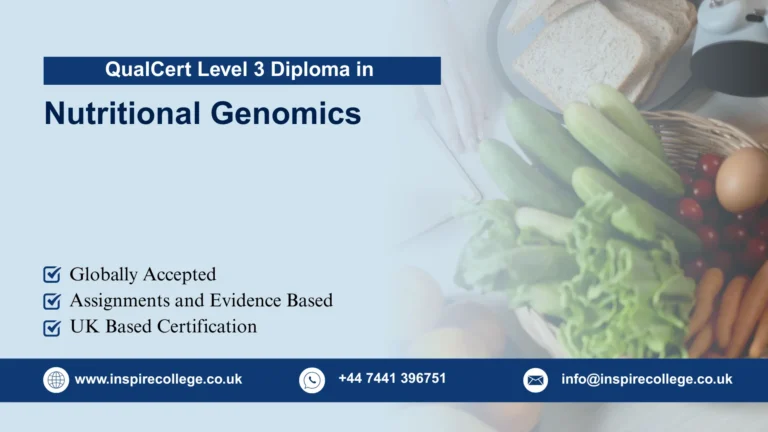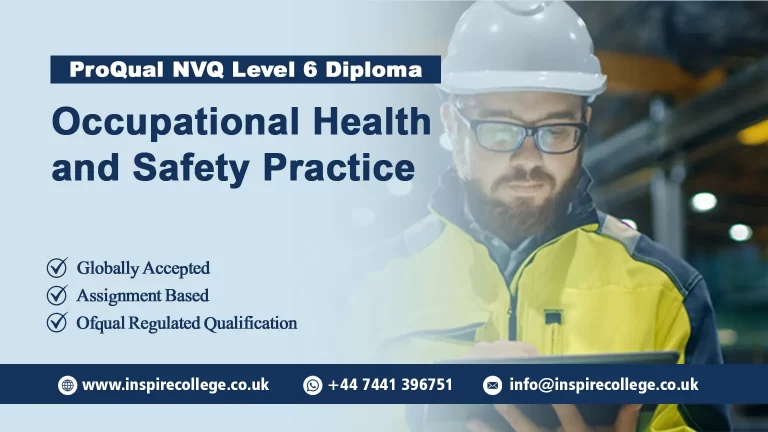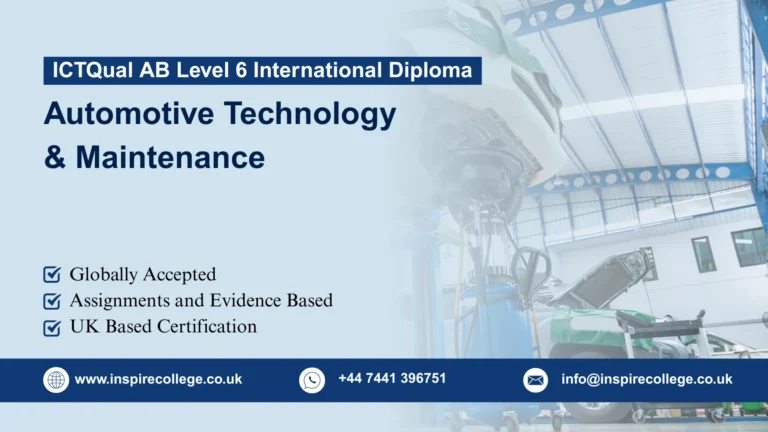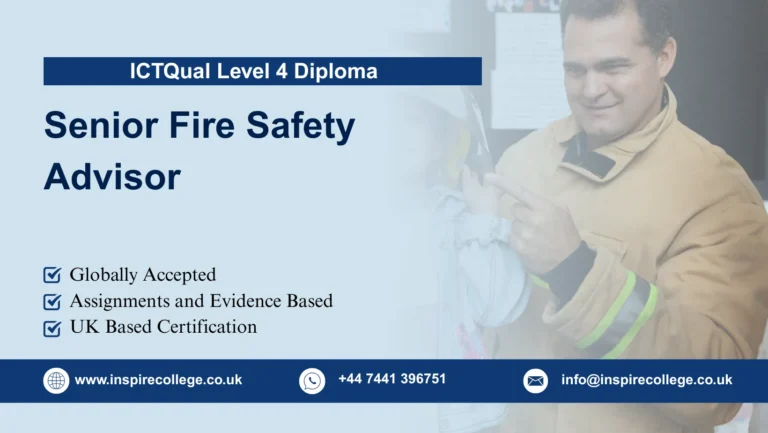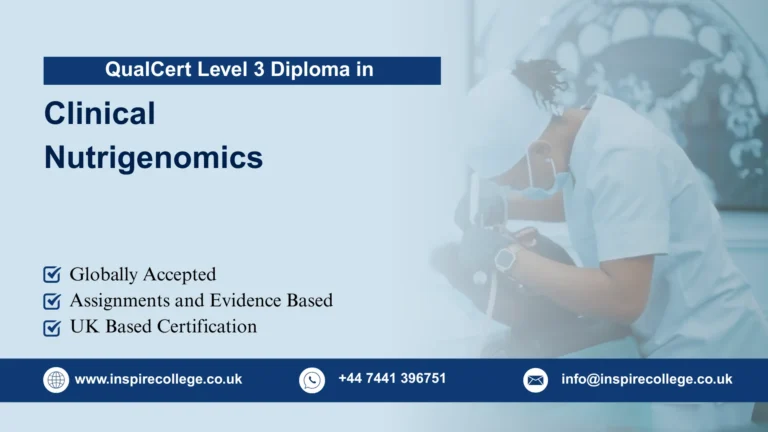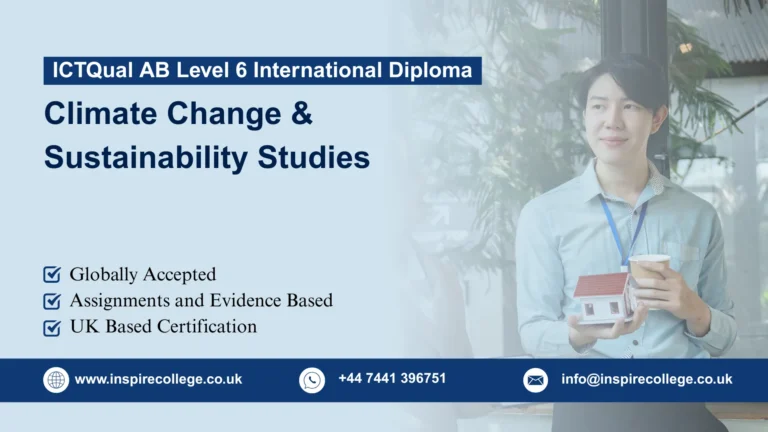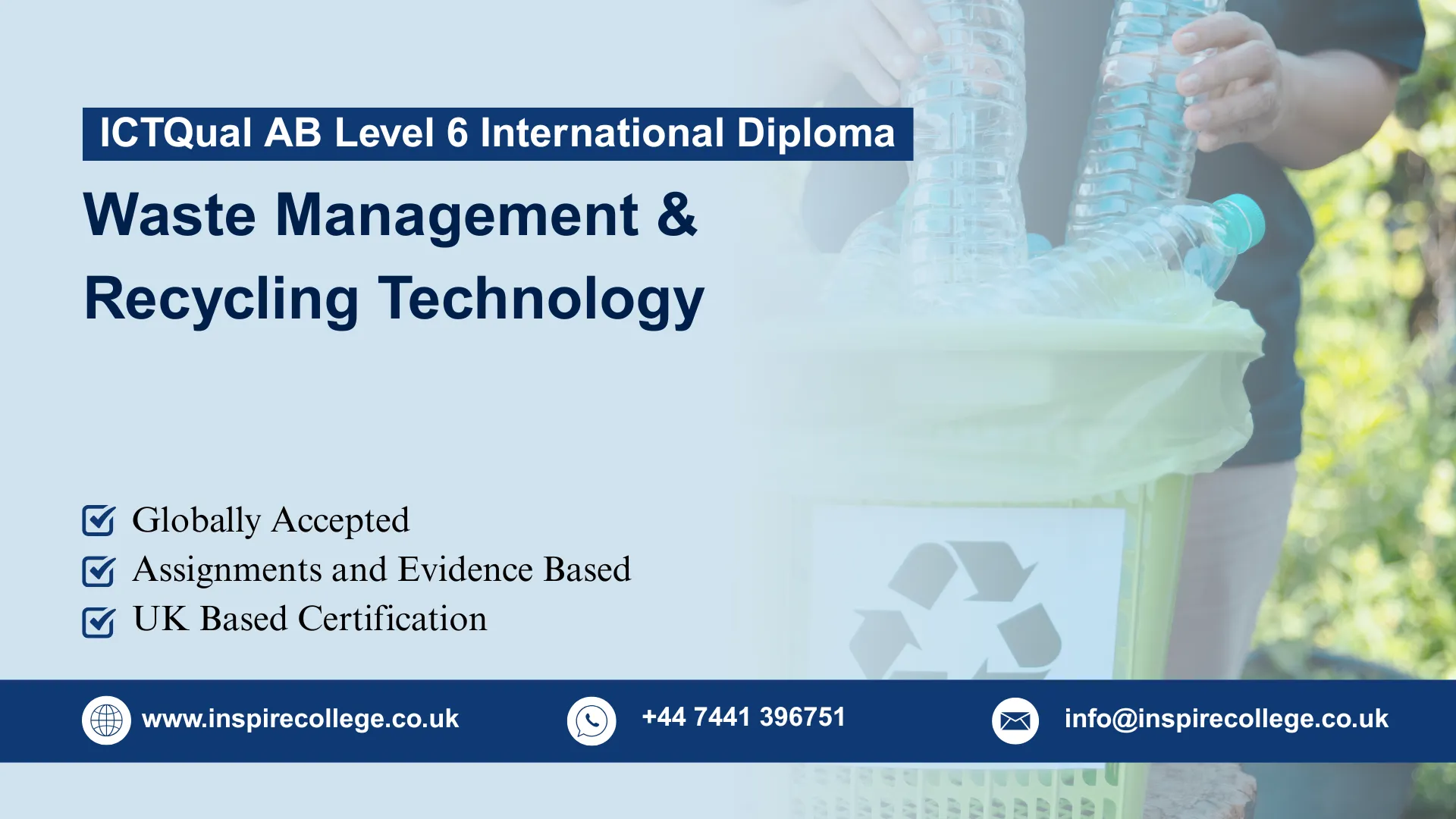
ICTQual AB Level 6 International Diploma in Waste Management & Recycling Technology
The ICTQual AB Level 6 International Diploma in Waste Management & Recycling Technology is a globally recognised programme designed to equip learners with advanced skills and knowledge in sustainable waste management, recycling technologies, and environmental stewardship. This three-year, 360-credit programme provides a comprehensive understanding of modern waste management practices, regulatory compliance, circular economy principles, and innovative recycling solutions.
Learners will gain expertise in areas such as waste collection, segregation, treatment technologies, resource recovery, and environmental impact assessment. The curriculum blends theoretical knowledge with practical applications, enabling learners to implement sustainable waste strategies, optimise recycling processes, and enhance operational efficiency across industrial, municipal, and commercial settings.
Ideal for both fresh graduates and experienced professionals, this diploma prepares learners for diverse careers in waste management companies, environmental consultancy firms, government agencies, and sustainability-driven organisations. Graduates will acquire skills in project management, regulatory compliance, environmental auditing, and technological innovation, positioning them to lead initiatives that reduce waste, improve resource efficiency, and support sustainable development goals globally.
By enrolling with our ICTQual AB Approved Training Centre, learners access internationally recognised credentials, expert guidance, and comprehensive study materials. Completion of this diploma enhances career prospects locally and internationally, empowering professionals to address waste management challenges, implement sustainable recycling solutions, and contribute meaningfully to environmental protection and circular economy initiatives.
Take your career to the next level and make a tangible environmental impact with the ICTQual AB Level 6 International Diploma in Waste Management & Recycling Technology, a qualification tailored for the growing global demand for skilled waste and recycling professionals.
To enrol in the ICTQual AB Level 6 International Diploma in Waste Management & Recycling Technology, learners must meet the following criteria:
- Age Requirement: Learners must be at least 18 years old.
- Educational Background:
- A relevant Level 5 qualification in environmental studies, waste management, engineering, or related disciplines is preferred.
- Fresh learners with secondary or vocational education in science, engineering, environmental studies, or sustainability are also eligible.
- Professional Experience:
- For experienced learners, a minimum of 3–5 years of verifiable professional experience in waste management, recycling operations, environmental consultancy, or related sectors is advantageous.
- Experience in municipal, industrial, or corporate waste management, sustainability initiatives, or resource recovery supports fast-tracked learning options.
- Language Proficiency: Learners must demonstrate proficiency in English to effectively engage with course materials, assignments, and practical assessments.
- Computer Literacy: Basic computer skills are required, including familiarity with MS Office, digital learning platforms, and data analysis tools.
- Commitment to Learning: Learners must be dedicated to completing the three-year, 360-credit programme, which includes theoretical modules, practical projects, and applied research.
These entry requirements ensure learners are academically and professionally prepared to succeed in the programme, developing the knowledge and skills needed for advanced roles in waste management, recycling technology, and sustainability leadership at an international level.
Mandatory Units
This qualification, the ICTQual AB Level 6 International Diploma in Waste Management & Recycling Technology, consists of 36 mandatory units.
Year 1 – Foundations of Waste Management & Recycling Technology
- Principles of Waste Management
- Introduction to Environmental Science and Sustainability
- Waste Legislation and Regulatory Compliance
- Waste Hierarchy and Circular Economy Concepts
- Hazardous and Non-Hazardous Waste Management
- Solid Waste Collection and Transportation Systems
- Recycling Technologies and Processes
- Water and Air Quality in Waste Management
- Occupational Health, Safety, and Environmental Awareness
- Environmental Communication and Reporting
- Professional Ethics in Waste Management
- Introduction to Project Planning in Waste Management
Year 2 – Applied Waste Management & Recycling Practices
- Advanced Waste Treatment and Processing Techniques
- Industrial Waste Management
- Hazardous Waste Handling and Disposal
- Waste-to-Energy Technologies
- Resource Recovery and Sustainable Practices
- Environmental Monitoring and Audit Techniques
- Waste Management in Manufacturing and Commercial Sectors
- Digital Tools and Technologies in Waste Management
- Environmental Risk Assessment and Management
- Behavioural and Organisational Approaches to Waste Safety
- Research Methods for Waste and Recycling Projects
- Project Implementation and Operational Planning
Year 3 – Strategic Leadership in Waste Management & Recycling
- Strategic Waste Management and Governance
- Integrated Environmental Management Systems (ISO 14001, ISO 50001)
- Policy Development and Implementation in Waste Management
- Sustainability Leadership and Corporate Social Responsibility (CSR)
- Environmental Risk Management in Large-Scale Projects
- Renewable Energy Integration in Waste Management
- International Waste Management Standards and Best Practices
- Innovation and Emerging Technologies in Recycling
- Environmental Crisis Management and Emergency Planning
- Advanced Occupational Health & Environmental Wellbeing Strategies
- Independent Research Project in Waste Management & Recycling
- Capstone Project: Applied Waste Management & Recycling Technology
Learning Outcomes for theICTQual AB Level 6 International Diploma in Waste Management & Recycling Technology 360 Credits – Three Years:
Year 1 – Foundations of Waste Management & Recycling Technology
Principles of Waste Management
- Understand the fundamental concepts of waste management and its role in environmental protection.
- Analyse different types of waste streams and their environmental impacts.
- Evaluate strategies for reducing, reusing, and recycling waste effectively.
- Apply waste management principles to practical and organisational contexts.
Introduction to Environmental Science and Sustainability
- Explain key environmental science concepts and their relevance to waste management.
- Understand sustainability principles and their application in waste reduction and resource conservation.
- Analyse environmental challenges related to waste management.
- Develop strategies to integrate sustainability practices in organisational operations.
Waste Legislation and Regulatory Compliance
- Understand local, national, and international waste management laws and regulations.
- Apply regulatory frameworks to ensure compliance in waste handling, treatment, and disposal.
- Analyse legal implications for non-compliance in waste management activities.
- Develop plans for maintaining adherence to environmental legislation.
Waste Hierarchy and Circular Economy Concepts
- Explain the waste hierarchy and its importance in sustainable waste management.
- Analyse circular economy principles for resource efficiency and sustainability.
- Apply circular economy strategies to minimise environmental impact.
- Evaluate methods to promote recycling, reuse, and recovery in operational settings.
Hazardous and Non-Hazardous Waste Management
- Identify hazardous and non-hazardous waste types and associated risks.
- Apply safe handling, storage, and disposal practices for different waste categories.
- Analyse environmental and health impacts of improper waste management.
- Develop strategies for risk mitigation in waste operations.
Solid Waste Collection and Transportation Systems
- Understand methods and systems for efficient waste collection and transportation.
- Analyse logistics and operational considerations for waste management services.
- Apply planning techniques for safe and effective waste movement.
- Evaluate collection systems for efficiency, safety, and environmental compliance.
Recycling Technologies and Processes
- Identify technologies and processes used for recycling different types of waste.
- Analyse the efficiency and sustainability of recycling methods.
- Apply practical knowledge to improve recycling operations and material recovery.
- Evaluate emerging technologies and innovations in recycling.
Water and Air Quality in Waste Management
- Understand the impact of waste management on water and air quality.
- Monitor and assess environmental parameters to ensure regulatory compliance.
- Apply mitigation measures to reduce pollution from waste operations.
- Develop strategies to maintain safe and sustainable environmental conditions.
Occupational Health, Safety, and Environmental Awareness
- Apply health and safety practices in waste management operations.
- Identify potential hazards and implement control measures.
- Promote environmental awareness and safety culture within organisations.
- Develop risk assessments for safe operational procedures.
Environmental Communication and Reporting
- Develop clear communication strategies for stakeholders in waste management.
- Prepare environmental reports and documentation for compliance and accountability.
- Analyse communication effectiveness in promoting environmental initiatives.
- Apply reporting standards for transparency and sustainability.
Professional Ethics in Waste Management
- Understand ethical principles relevant to waste management and environmental protection.
- Apply professional ethics in decision-making and operational practices.
- Analyse ethical dilemmas in environmental and organisational contexts.
- Promote integrity and accountability in waste management operations.
Introduction to Project Planning in Waste Management
- Apply project management principles to waste management initiatives.
- Develop project plans, timelines, and resource allocation strategies.
- Monitor and evaluate project progress and performance.
- Implement corrective measures to ensure project objectives are achieved.
Year 2 – Applied Waste Management & Recycling Practices
Advanced Waste Treatment and Processing Techniques
- Analyse advanced technologies for waste treatment and processing.
- Apply methods for efficient and sustainable waste treatment.
- Evaluate operational challenges and solutions in waste processing.
- Integrate best practices in industrial and municipal settings.
Industrial Waste Management
- Understand the generation, handling, and disposal of industrial waste.
- Apply strategies for minimising environmental impacts of industrial operations.
- Develop operational plans for sustainable industrial waste management.
- Analyse regulatory compliance requirements for industrial waste.
Hazardous Waste Handling and Disposal
- Implement safe handling and disposal techniques for hazardous waste.
- Analyse risks to human health and the environment.
- Apply regulatory compliance procedures for hazardous waste management.
- Develop mitigation strategies for hazardous waste operations.
Waste-to-Energy Technologies
- Understand the principles and technologies of converting waste into energy.
- Analyse economic, environmental, and operational benefits of waste-to-energy systems.
- Apply knowledge to integrate energy recovery into waste management strategies.
- Evaluate emerging innovations in waste-to-energy technologies.
Resource Recovery and Sustainable Practices
- Identify opportunities for resource recovery in waste streams.
- Apply sustainable practices to optimise waste reuse and recycling.
- Analyse efficiency and impact of recovery strategies.
- Develop operational plans to implement resource recovery initiatives.
Environmental Monitoring and Audit Techniques
- Design and implement environmental monitoring programmes.
- Apply auditing techniques to assess compliance and performance.
- Analyse data to identify environmental risks and improvement areas.
- Report findings for informed decision-making and operational improvements.
Waste Management in Manufacturing and Commercial Sectors
- Apply waste management strategies in manufacturing and commercial operations.
- Analyse sector-specific challenges and develop sustainable solutions.
- Implement operational improvements to minimise waste generation.
- Evaluate the effectiveness of waste reduction initiatives.
Digital Tools and Technologies in Waste Management
- Apply digital platforms, software, and data analytics for waste management.
- Explore innovations such as IoT, GIS, and smart monitoring systems.
- Analyse technological solutions to improve efficiency and sustainability.
- Evaluate emerging digital tools for waste operations.
Environmental Risk Assessment and Management
- Identify potential environmental risks in waste operations.
- Conduct risk assessments and implement mitigation strategies.
- Analyse operational impacts and develop contingency plans.
- Monitor and review risk management plans for continuous improvement.
Behavioural and Organisational Approaches to Waste Safety
- Promote a safety culture within waste management organisations.
- Apply behavioural strategies to enhance compliance and risk reduction.
- Analyse organisational structures for safety performance.
- Develop training and awareness programmes for staff.
Research Methods for Waste and Recycling Projects
- Apply research methodologies to study waste management and recycling.
- Design and conduct data-driven projects and investigations.
- Analyse research findings to inform operational and strategic decisions.
- Present research outcomes in a professional and structured manner.
Project Implementation and Operational Planning
- Develop detailed operational plans for waste management projects.
- Apply project management principles to ensure timely delivery.
- Monitor resources, risks, and performance throughout project execution.
- Evaluate project outcomes for effectiveness and sustainability.
Year 3 – Strategic Leadership in Waste Management & Recycling
Strategic Waste Management and Governance
- Develop and implement strategic waste management policies.
- Analyse governance frameworks and organisational decision-making processes.
- Apply strategic planning to optimise waste management operations.
- Evaluate long-term environmental and operational impacts.
Integrated Environmental Management Systems (ISO 14001, ISO 50001)
- Understand international environmental management standards.
- Implement ISO-compliant systems to enhance sustainability performance.
- Monitor and audit environmental management processes.
- Evaluate compliance and continuous improvement opportunities.
Policy Development and Implementation in Waste Management
- Develop policies for waste reduction, recycling, and sustainable operations.
- Analyse policy impacts on organisational performance and compliance.
- Apply implementation strategies to ensure effectiveness.
- Evaluate policy outcomes and refine strategic approaches.
Sustainability Leadership and Corporate Social Responsibility (CSR)
- Apply leadership principles to sustainability and CSR initiatives.
- Develop programmes to integrate environmental and social responsibility.
- Analyse organisational culture and stakeholder engagement for sustainability.
- Evaluate the impact of leadership decisions on environmental outcomes.
Environmental Risk Management in Large-Scale Projects
- Identify, assess, and mitigate environmental risks in large-scale operations.
- Apply crisis response planning and risk management frameworks.
- Monitor environmental performance and compliance.
- Develop contingency plans for emergency situations.
Renewable Energy Integration in Waste Management
- Understand renewable energy solutions applicable to waste operations.
- Analyse integration methods for energy recovery and efficiency.
- Apply strategies to optimise energy use in waste management facilities.
- Evaluate technological innovations in renewable energy systems.
International Waste Management Standards and Best Practices
- Apply global best practices and standards in waste management.
- Analyse compliance requirements for international operations.
- Develop operational strategies aligned with global benchmarks.
- Evaluate performance improvements using international standards.
Innovation and Emerging Technologies in Recycling
- Explore cutting-edge technologies for recycling and resource recovery.
- Apply innovative solutions to enhance operational efficiency.
- Analyse trends in waste processing and circular economy practices.
- Evaluate potential for scaling up emerging technologies.
Environmental Crisis Management and Emergency Planning
- Develop strategies for managing environmental emergencies.
- Apply crisis communication and stakeholder coordination frameworks.
- Analyse risks and implement mitigation measures for emergency scenarios.
- Evaluate response effectiveness and lessons learned.
Advanced Occupational Health & Environmental Wellbeing Strategies
- Implement comprehensive health, safety, and wellbeing programmes.
- Analyse occupational risks and develop mitigation strategies.
- Promote employee engagement in sustainable operational practices.
- Evaluate organisational effectiveness in maintaining a safe and healthy environment.
Independent Research Project in Waste Management & Recycling
- Conduct independent research on a topic related to waste management or recycling.
- Apply data analysis, research methodologies, and critical thinking.
- Develop actionable insights and recommendations for sustainability improvements.
- Present findings in a structured, professional, and academically rigorous manner.
Capstone Project: Applied Waste Management & Recycling Technology
- Integrate knowledge and skills acquired throughout the programme.
- Design and implement comprehensive waste management or recycling projects.
- Demonstrate leadership, problem-solving, and strategic decision-making.
- Evaluate project outcomes and provide evidence-based recommendations for improvement.
This programme is designed to accommodate a wide range of learners globally, from recent graduates to experienced professionals seeking expertise in waste management, recycling technology, and sustainable environmental practices.
1. Fresh Graduates and Entry-Level Learners
- Individuals aged 18 years or older with a keen interest in waste management, recycling, and environmental sustainability.
- Recent graduates in environmental science, engineering, chemistry, or related disciplines seeking internationally recognised qualifications.
- Learners aiming to build a strong foundation in waste management principles, recycling technologies, and sustainability practices.
- Candidates looking to gain practical skills applicable in waste treatment plants, municipal services, industrial recycling, and environmental consultancy.
2. Early Career Professionals
- Technicians, junior managers, or operational staff in waste management or recycling sectors looking to enhance expertise.
- Individuals seeking specialisation in hazardous waste management, resource recovery, renewable energy integration, and circular economy practices.
- Professionals aiming to improve strategic decision-making, project management, and leadership skills in sustainability operations.
- Learners committed to combining practical experience with advanced theoretical knowledge for real-world impact.
3. Experienced International Professionals
- Professionals with 3–5 years or more of experience in waste management, environmental consultancy, recycling technology, or sustainability initiatives.
- Learners seeking to formalise skills with an internationally recognised Level 6 qualification.
- Individuals aspiring to senior management, consultancy, or strategic leadership roles in waste management organisations globally.
- Professionals focused on long-term career growth in sustainable development, circular economy implementation, and environmental governance.
4. Career Switchers and Sustainability Enthusiasts
- Individuals from related sectors (engineering, logistics, energy, or public administration) wishing to transition into waste management and recycling careers.
- Learners passionate about environmental protection, sustainability, and circular economy initiatives.
- Candidates motivated to combine research, strategy, and applied practice to achieve professional competence in international waste management.
Key Attributes of Ideal Learners
- Commitment to completing the three-year, 360-credit programme.
- Strong analytical, problem-solving, and decision-making skills.
- Good communication, teamwork, and project management capabilities.
- Willingness to stay updated with emerging recycling technologies, environmental regulations, and global best practices.
- Dedication to ethical, responsible, and sustainable practices in all professional operations.
As an ICTQual AB Approved Training Centre, we offer learners two flexible pathways to achieve the Level 6 International Diploma in Waste Management & Recycling Technology. All learners must enrol with our centre to access study materials, guidance, and assessments.
Route 1 – Experienced Professionals
Designed for learners with 6+ years of verifiable professional experience in waste management, recycling technology, environmental consultancy, or related sectors:
- Submit evidence of prior work, including projects, responsibilities, and achievements demonstrating expertise in waste treatment, recycling operations, sustainability initiatives, and regulatory compliance.
- Our centre evaluates the learner’s existing skills and knowledge against the diploma’s learning outcomes.
- Targeted guidance or additional training is provided if gaps are identified.
- Successful verification allows fast-tracked diploma certification without completing all 36 assignments, recognising professional expertise.
Route 2 – Fresh Learners
Designed for learners without prior professional experience in waste management or recycling:
- Complete the full three-year, 360-credit programme, including all 36 assignments, practical projects, applied research, and operational assessments.
- Assessments are structured to demonstrate both theoretical knowledge and practical application in real-world waste management and recycling scenarios.
- Upon successful completion, learners are awarded the ICTQual AB Level 6 International Diploma in Waste Management & Recycling Technology.
Benefits of Both Routes
- Gain a globally recognised, internationally relevant qualification.
- Validate existing professional experience (Route 1) or acquire comprehensive expertise (Route 2).
- Enhance career prospects in waste management companies, recycling plants, environmental consultancy firms, government agencies, and sustainability-driven organisations.
- Develop strategic, analytical, and leadership skills to address global waste and sustainability challenges.
- Prepare for roles that contribute to circular economy initiatives, environmental compliance, and sustainable resource management.
Register Now
FAQs for ICTQual AB Level 6 International Diploma in Waste Management & Recycling Technology

